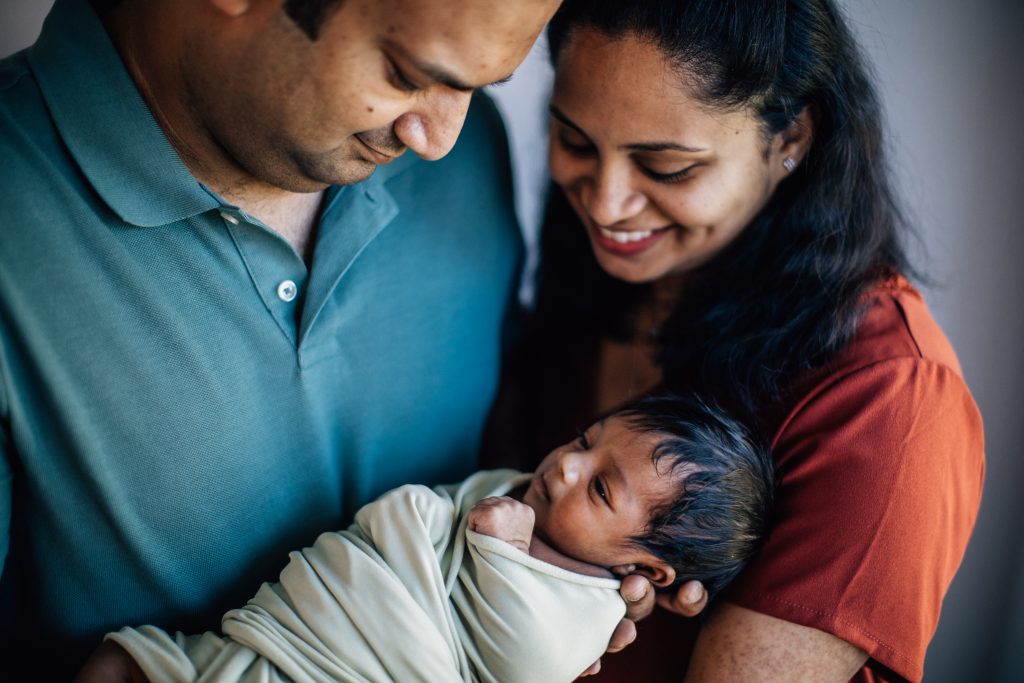Article from 2019/2020 Impact of Giving Annual Report
Nolan Tellis and Viola Rodrigues were overjoyed when they fell pregnant with their first child. However, three months before their baby was due, Viola was rushed to the hospital with back pains, and gave birth to their son, Ayden.
“Although Ayden was born premature, on delivery everything was fine, there was nothing wrong,” said Dad Nolan.
Despite being born with no immediate concerns, due to his early arrival, Ayden had to remain in hospital for monitoring and spent time in the NICU. After 10 days in NICU, Ayden and his family were transferred to a local hospital to be closer to home in Ferntree Gully. This is when Nolan noticed changes in Ayden’s appearance that worried him.
“At first I thought he was out of it from travelling to a new hospital, but after being moved Ayden was looking different – he was pale, he seemed to be losing weight. That’s when we thought something was really wrong.”
The clinicians ran a series of diagnostics on Ayden but they could not find the cause of the little baby’s deteriorated health. That’s when the family were told that the RCH was the right place to go to get answers. With time against them, the family rushed over in the early hours of the morning.
“His condition got very bad, they had to get him into a stable condition as he was breathing heavily, the doctors at the RCH said there was a lot of acid build up in his body,” said Nolan.
After days of attentive care, Ayden’s condition began to stabilise, allowing the treating team to concentrate on finding the cause. Ayden had been passing more than double the normal amount of stool, meaning he was not absorbing vital nutrients. This is when the team identified Ayden’s issues could be related to his intestine and digestion.
Identifying the problem was a step forward for the family, however the cause was still unknown, and Nolan and Viola continued to watch as their little baby remained critical. This is when they were introduced to Dr Michelle de Silva, Genetic Counsellor from the Acute Care Genomics team who offered a glimmer of hope. By enrolling in the Acute Care Genomics study they could use DNA testing to potentially find an answer, the family didn’t hesitate in consenting.
“Although the team didn’t give us any false hope, we needed closure. We went through a lot of ups and downs without a diagnosis and we wanted to know how to help Ayden,” said Nolan.
The Acute Care Genomics team took blood samples from Viola and Nolan, and clinicians conducted a biopsy of Ayden’s intestine. After running genetic testing, their suspicions were finally confirmed. Ayden was diagnosed with a rare intestinal disorder called microvillus inclusion disease (MID), caused by a recessive gene trait. The condition results in severe diarrhoea and an inability to absorb nutrients. The results were devastating. The diagnosis meant that Ayden’s condition was life-limiting, and Michelle was able to support the family as they made the difficult transition to focus on prioritising Ayden’s comfort and the family’s remaining time together. Sadly, Ayden passed away at three months of age.
“Because of the Acute Care Genomics Study, the family were able to make informed decisions for the short time they had together. It also gave them information for planning for the future,” said Michelle.
Knowing that they both carried a recessive gene which could cause MID helped Nolan and Viola make decisions before trying for another baby.
“This year we fell pregnant again. At 12 weeks we got a sample of the placenta taken for genetic testing and it came back clear. Because of Acute Care Genomics, we were able to take proactive steps and our son Jayden was delivered with no issues, he is a happy and healthy baby,” said Nolan.

Nolan, Viola and baby Jayden